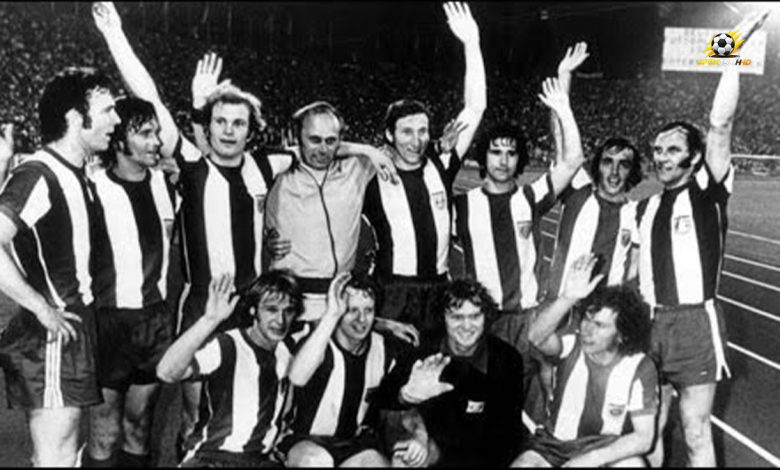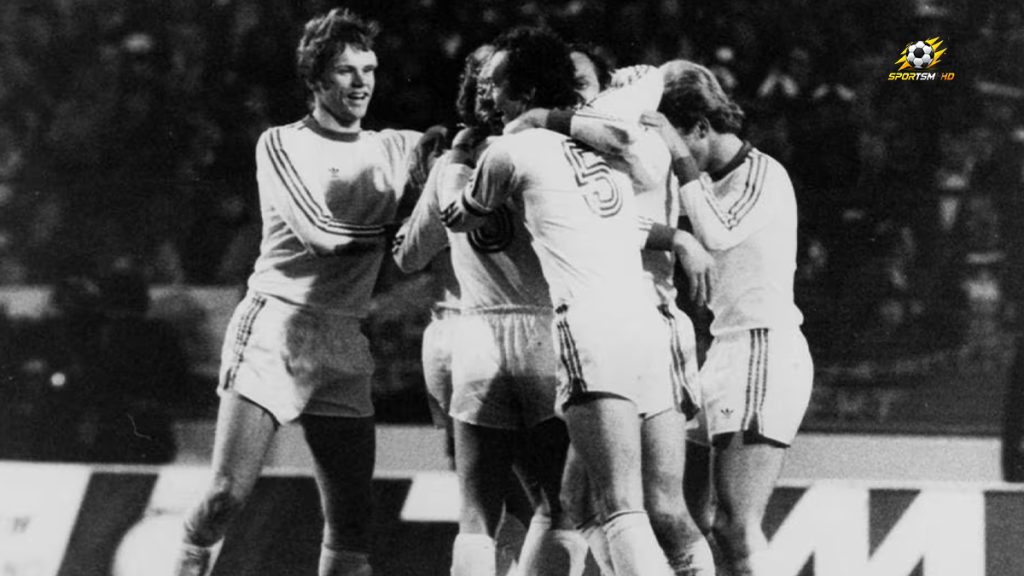Bayern Munich: A Complete History of Germany’s Most Successful Football Club

Bayern Munich, officially known as FC Bayern München, is one of the most successful and iconic football clubs in the world. Founded in 1900, the club is based in Munich, Germany, and has achieved remarkable success both domestically and internationally. Known for its passionate fanbase, rich tradition, and elite players, Bayern Munich’s history is a story of triumph, perseverance, and dominance.
Early Beginnings (1900-1930s)
The club was founded on February 27, 1900, by a group of Munich-based football players. The name “Bayern” comes from the German word for Bavaria, the region where Munich is located. Bayern Munich initially struggled to establish itself as a dominant force in German football.
However, in the 1930s, the club began making significant strides in the regional leagues. Bayern’s first major success came in 1932 when the team won the German championship for the first time, defeating Eintracht Frankfurt in the final.
Post-War Era and Rise to Prominence (1940s-1970s)
World War II disrupted European football, and Bayern Munich, like many other clubs, faced challenges in the post-war period. However, the club rebounded quickly and began establishing itself as a formidable force in Germany. The 1960s saw Bayern’s first major league successes, but it was in the 1970s that the club truly made its mark on the European stage.
The 1970s were a golden era for Bayern Munich, marked by the leadership of legendary figures such as Franz Beckenbauer, Gerd Müller, and Sepp Maier. Under the management of Udo Lattek and later Dettmar Cramer, Bayern won multiple Bundesliga titles and achieved European glory by winning the European Cup (now the UEFA Champions League) three consecutive times in 1974, 1975, and 1976. This period solidified Bayern Munich as a global football powerhouse.
The 1980s and 1990s – Struggles and Success
The 1980s were a time of transition for Bayern. The club remained competitive but was not able to dominate the European scene like it had in the 1970s. In the Bundesliga, however, Bayern was consistently at the top, winning several titles.
The club’s success in domestic competitions continued into the 1990s. In 1996, Bayern won the UEFA Cup under the management of Otto Rehhagel, a significant achievement that showed they were still a force to be reckoned with.
Read More >>FC Barcelona’s Incredible Journey: A Detailed Club History
The 1990s also saw the arrival of several key players, including German internationals like Lothar Matthaus, who had an instrumental role in Bayern’s domestic and international triumphs. In 2001, Bayern Munich secured their fourth European Cup, defeating Valencia in a dramatic penalty shoot-out.
The Modern Era (2000s-Present)
Bayern Munich entered the 21st century with a renewed focus on reclaiming their European dominance. In the 2000s, the club’s financial stability and business acumen made them a significant player in the global football market.
They continued to attract top talent, including world-class players such as Arjen Robben, Franck Ribéry, and Robert Lewandowski.

In 2010, Bayern Munich reached the final of the UEFA Champions League but was defeated by Inter Milan. However, their redemption came in 2013 when Bayern won the Champions League for the fifth time, defeating Borussia Dortmund 2-1 in a thrilling final at Wembley. This victory was part of a historic treble for Bayern, as they also won the Bundesliga and the DFB-Pokal that season.
The club continued to assert its dominance in European and German football, winning multiple Bundesliga titles and achieving success in international competitions. In 2020, Bayern Munich achieved perhaps their most impressive feat, winning the UEFA Champions League under the management of Hans-Dieter Flick.
The club won the competition in a pandemic-affected year with a remarkable 1-0 victory over Paris Saint-Germain in the final, completing a second historic treble, following their 2013 success.
Playing Style and Philosophy
Bayern Munich is known for its strong attacking football, high pressing, and tactical versatility. Over the years, Bayern Munich has been praised for its ability to adapt to various footballing philosophies. In the 1970s, under the guidance of coaches like Helmut Schon, Bayern Munich played a fast-paced, counter-attacking style of football. Later, under managers like Louis van Gaal, Jupp Heynckes, and Hans-Dieter Flick, Bayern adopted more possession-based, attacking styles.
Read More >>Real Madrid: A Complete History of the World’s Greatest Club
The club also has a philosophy of nurturing young talents through its academy and integrating them into the first team. Players like Thomas Müller, Philipp Lahm, and Bastian Schweinsteiger, all of whom came through Bayern’s youth ranks, became club legends.
Club Achievements and Records
Bayern Munich has achieved unparalleled success in German football. The club has won the Bundesliga a record 32 times and has a longstanding rivalry with Borussia Dortmund. Bayern has also won the DFB-Pokal (German Cup) 20 times, making them the most successful club in the competition.
On the international stage, Bayern Munich has won the prestigious UEFA Champions League six times, with victories in 1974, 1975, 1976, 2001, 2013, and 2020. Bayern is also the only club to have won the continental treble (domestic league, domestic cup, and Champions League) twice, in 2013 and 2020.
Fanbase and Culture
Bayern Munich’s fanbase is massive and passionate, not only in Germany but across the world. The club has millions of supporters who follow the team through thick and thin. Their home stadium, the Allianz Arena, is one of the most iconic football venues in Europe. Known for its distinctive red exterior, the stadium holds over 75,000 fans and is often referred to as “The Temple of Bayern.”
The club’s culture emphasizes excellence, dedication, and loyalty. Fans and players alike take immense pride in the club’s history and achievements. Bayern Munich also promotes community involvement and has several charity initiatives, which further cement its connection to both local and global communities.
Finally
Bayern Munich’s history is a testament to the club’s commitment to success and its legacy as one of the greatest football teams in the world. From its humble beginnings in 1900 to its modern-day dominance on the world stage, Bayern Munich has consistently been a club that inspires admiration and respect.
The future of Bayern Munich looks bright, as the club continues to compete at the highest level, with a commitment to preserving its rich traditions while embracing modern innovations in football.